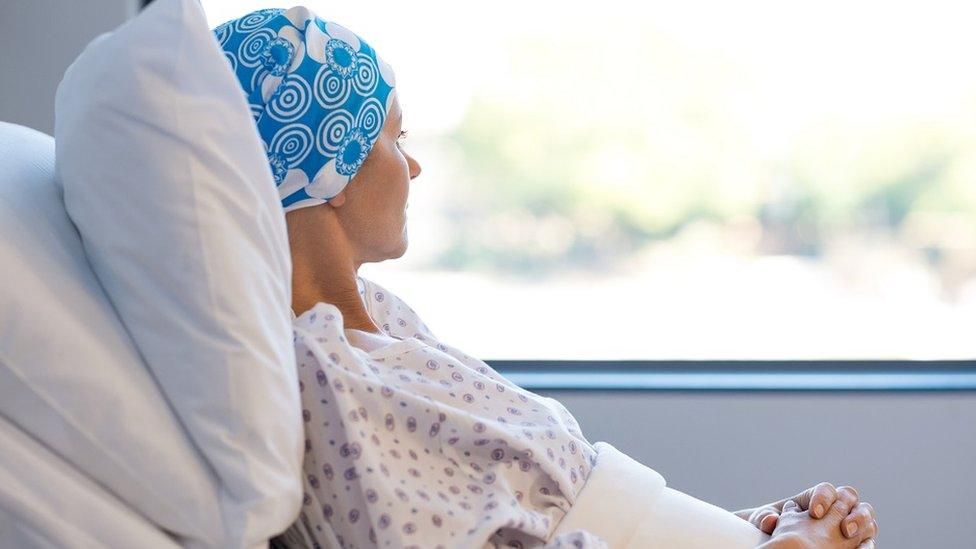Scottish cancer referrals at pre-pandemic levels
- Published

Cancer screening programmes were paused during the pandemic
The number of patients referred for treatment for urgent suspicion of cancer returned to pre-pandemic levels over the summer, new figures show.
From April to the end of June there were 3,953 eligible referrals for the 62-day standard to start treatment for suspected cancer.
That was up 10.1% from the previous three months.
The latest figure is higher than the three months before the pandemic began at the end of March last year.
In the early stages of the Covid pandemic there was a large fall in the number of patients being sent for treatment, suggesting there were thousands of people who had cancer but did not have it diagnosed.
Cancer screening services were suspended and additional infection control measures in hospitals put limits on the number of scans or other tests that could take place.
Other people avoided going to their GP with symptoms and clinicians warned they were seeing more people with advanced disease which meant their outcomes were poorer.
Statistics released in July showed the number of people being diagnosed and starting cancer treatment during the first year of the Covid pandemic dropped by thousands compared with previous years.
The latest figures from Public Health Scotland, external show numbers returning to pre-Covid levels.
The statistics show 84.1% of patients started treatment within the 62-day standard, which states the maximum time patients should wait from urgent suspicion of cancer referral to first treatment.
'Chronic shortages'
This figure was similar to pre-Covid levels but well below the target of 95% set by the Scottish government.
Another target is that 95% of patients should wait no more than 31 days from a decision to treat to first cancer treatment.
There were 6,322 eligible referrals within the 31-day standard and 98.1% of patients started treatment within the target.
David Ferguson, of Cancer Research UK, said too many people were waiting too long for diagnosis and treatment.
He said: "While some of the waits are due to backlogs and additional Covid-19 safety measures, cancer services were already struggling before the pandemic.
"Chronic shortages in staff and equipment mean that cancer waiting time targets have been missed for years.
"The onset of winter pressures is likely to make the situation worse and we're concerned cancer survival could start to go backwards for the first time."
A Scottish government spokesman said: "Despite NHS Scotland experiencing unprecedented significant and sustained pressures because of the Covid-19 pandemic, cancer has remained a priority.
"Our NHS staff have worked incredibly hard over the last year to ensure the majority of cancer treatment and care have continued, with the 31-day waiting times target being consistently met, and patients waiting an average of four days for treatment, following a decision to treat."
Related topics
- Published29 June 2021
